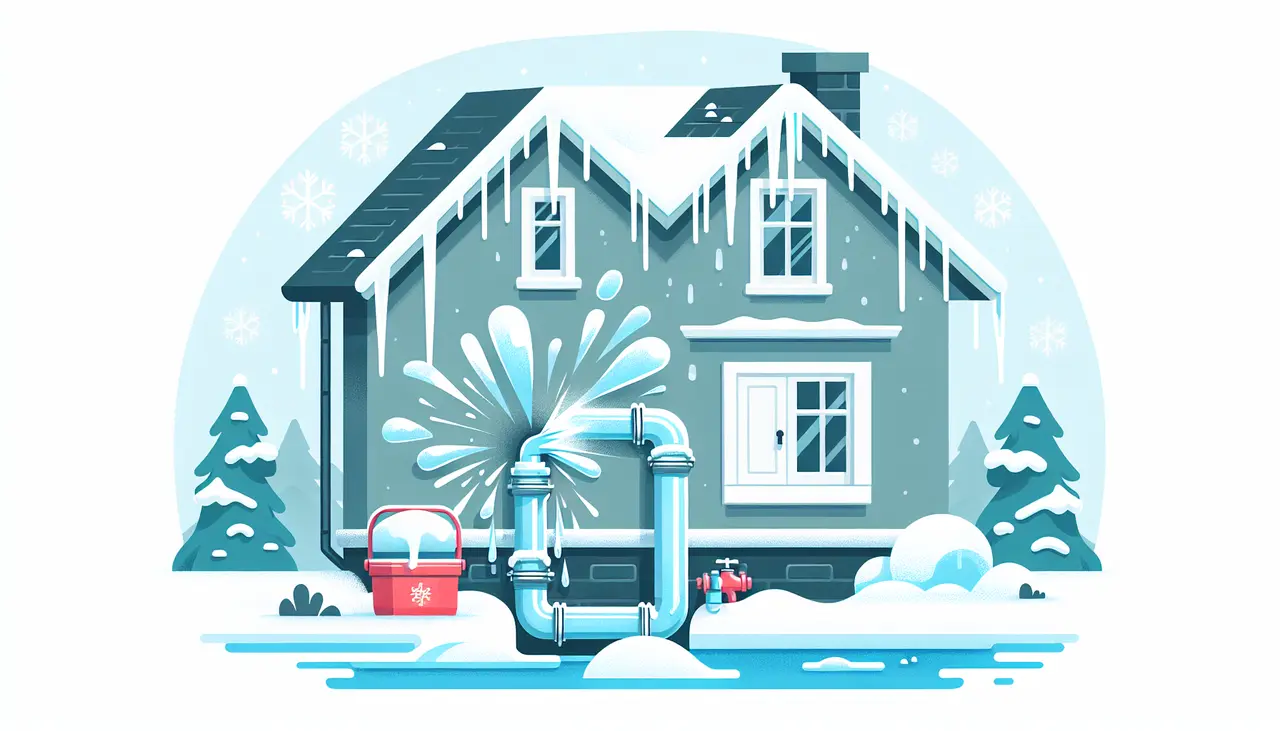Winter in Michigan is beautiful, but it can also be brutal. When temperatures plummet, one of the biggest threats to your home is frozen pipes. Water expands as it freezes, and this expansion can put immense pressure on your pipes, potentially causing them to burst. A burst pipe can lead to significant water damage, costly repairs, and a major headache.
But don’t worry! Apex Homeworks is here to help. We’ve helped countless homeowners in Macomb, Oakland, and Wayne counties deal with frozen pipes prevention. In this blog, we’ll provide expert advice on thawing frozen pipes safely and taking preventative measures to protect your home.
Recognizing the Signs
First things first, how do you know if your pipes are frozen? Here are some telltale signs:
- No water flow: If you turn on a faucet and only a trickle or no water comes out, it could indicate a frozen pipe.
- Frost on pipes: Visible frost on exposed pipes is a clear sign that they are freezing.
- Strange smells: An unusual odor coming from a faucet or drain could indicate a frozen pipe.
Thawing Frozen Pipes: Safety First!
If you suspect a frozen pipe, it’s important to act quickly but cautiously. Never use an open flame, such as a blowtorch, to thaw pipes. This can damage the pipes and even create a fire hazard.
Here are some safer thawing methods:
- Hair dryer: Use a hair dryer on the lowest setting to warm the frozen pipe slowly. Start near the faucet and work your way towards the frozen area.
- Heating pad: Wrap a heating pad around the frozen pipe.
- Warm towels: Apply warm, wet towels to the frozen pipe.
- Space heater: Place a space heater in the room where the frozen pipe is located, but keep it a safe distance from flammable materials.
Important Note: If you’re uncomfortable thawing the pipes yourself or if the frozen section is inaccessible, call a licensed plumber immediately. Attempting to thaw pipes improperly can worsen the situation and lead to costly damage.
Preventing Frozen Pipes: Proactive Measures
The best way to deal with frozen pipes is to prevent them in the first place. Here are some proactive steps you can take:
- Insulate pipes: Insulate exposed pipes in unheated areas like crawl spaces, attics, and garages. Use pipe insulation sleeves or heat tape to protect them from freezing temperatures.
- Seal air leaks: Seal any cracks or gaps around pipes where cold air can enter. Use caulk or weather-stripping to seal these openings.
- Keep garage doors closed: If you have water supply lines in your garage, keep the garage door closed to prevent freezing temperatures from reaching the pipes.
- Let faucets drip: During extremely cold weather, allow a slow drip of cold water from faucets served by exposed pipes. This keeps water moving and helps prevent freezing.
- Maintain a consistent temperature: Keep your thermostat set to the same temperature day and night, even when you’re away from home. A sudden drop in temperature can increase the risk of frozen pipes.
- Open cabinet doors: Open cabinet doors under sinks to allow warmer air to circulate around pipes.
- Disconnect hoses: Disconnect garden hoses and outdoor faucets before winter arrives. Drain the water from the hoses and store them indoors.
Apex Homeworks: Your Winter Partner
Frozen pipes can be a major inconvenience and a costly problem. But with proper prevention and prompt action, you can minimize the risk of freeze-ups and protect your home.
At Apex Homeworks, we understand the challenges of Michigan winters. Our team of experienced professionals can help you with:
- Winterizing your plumbing: We can inspect your plumbing system, identify vulnerable areas, and recommend appropriate insulation and preventative measures.
- Home remodeling and renovations: We can help you upgrade your plumbing system to improve efficiency and reduce the risk of future problems.
Don’t let frozen pipes leave you out in the cold!
Call us at 888-979-2739 or visit us online at www.apexhomeworks.com to schedule a consultation. We proudly serve Macomb, Oakland, and Wayne counties.


